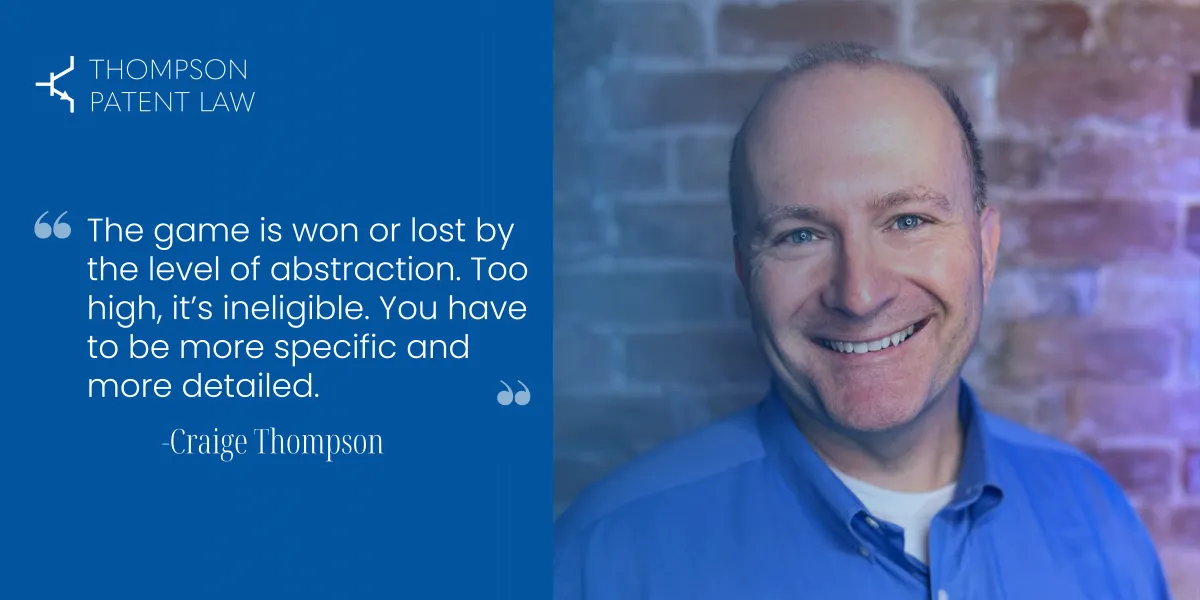
info@thompsonpatentlaw.com

6 Keys You Need So You Can Profit by Patenting Software: The Ultramercial Warning - Understanding the Limitations of Patenting Software in the Post-Alice Landscape (Post 3 of 6)
The Ultramercial Warning - Understanding the Limitations of Patenting Software in the Post-Alice Landscape
6 Part Series: 6 Keys You Need So You Can Profit by Patenting Software
This is the third in a series of 6 posts for decision-makers who are responsible for protecting high value, innovative software. If you missed the beginning of the series, click below so you can access the entire series and not miss any important or actionable insights for your business.
***Click here to jump to the start of this series***
Navigating the Murky Waters:
Ultramercial Inc. v. Hulu, LLC serves as a cautionary tale in the realm of software patents. Although the case initially seemed favorable to software patenting, the court ultimately deemed the claims ineligible. Why? Because they were simply taking an abstract business practice and incorporating 'routine additional steps.' Let's break down why this decision has significant implications for software companies.
Why Ultramercial Fell Short:
The company argued that their method of 'offering media content in exchange for viewing an advertisement' was an innovation. Unfortunately, the court found that the claimed invention was merely an abstract idea with added routine steps, thus failing to clear the Alice step one hurdle. In essence, this wasn't a patentable technological advancement, but rather a business model imported into the internet space.
The Burkheimer Buzz:
Legal standards and buzzwords are continually evolving. As of late, the term "well-understood, routine, and conventional" has been the catchphrase used to describe elements that are likely to be found ineligible for patenting. This is important to note as it adds another layer of scrutiny to an already complex process of determining patent eligibility post-Alice.
Actionable Business Take-away:
The Ultramercial decision highlights the importance of not merely digitizing an old business model and expecting it to be patentable. Your patent claims should be focused on solving specific technological problems, avoiding what's considered "routine and conventional" in your industry.
What's Next:
So, how can you ensure your software patent claim is more DDR and less Ultramercial? The key is in understanding the elements that give weight to your claims and the common mistakes you should steer clear of. The next post will provide you with practical tips to design a claim that walks the fine line between invention and abstraction. Intrigued? You should be!
Eager to learn about the elements that can make or break your software patent application? Don't miss the next article in this critical series.
***To read the next article in this series immediately, click here now.***
P.S. If you want to learn even more about the correct ways to protect software with patents in the post-Alice era, check out Craige's Litigation Quality PatentCast here.
Click here to listen to Craige's PatentCast on Protecting Software with Patents
